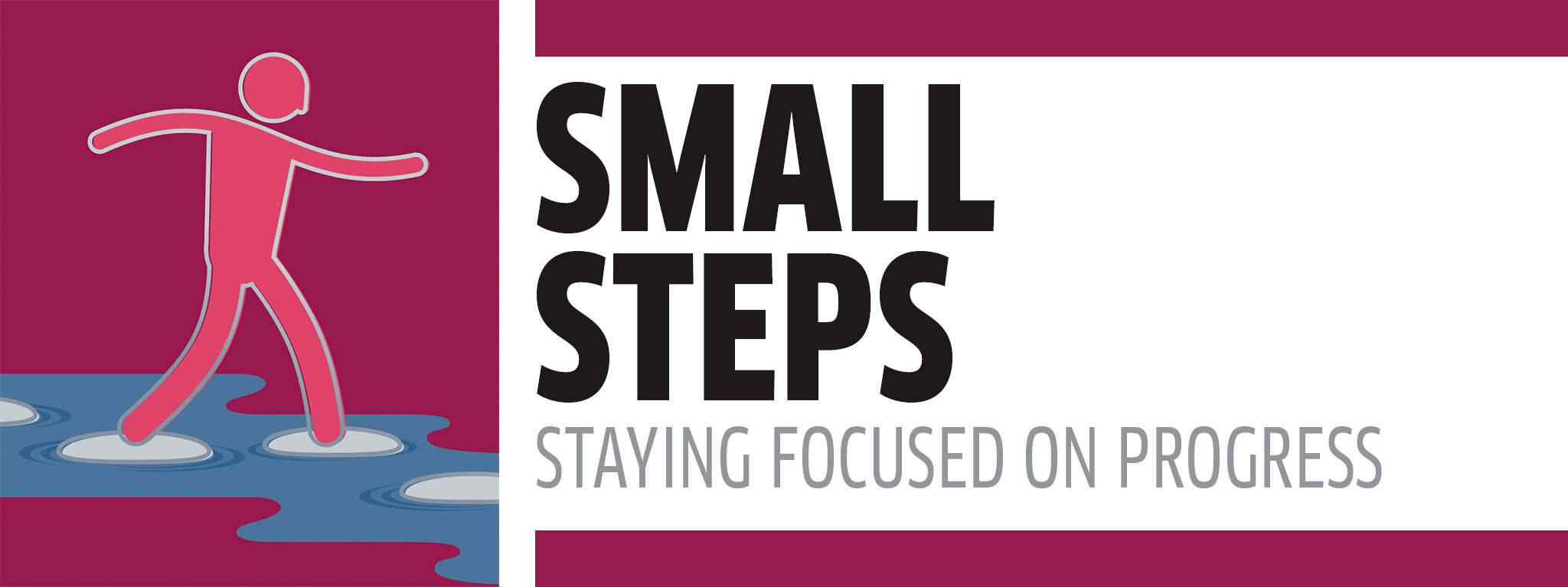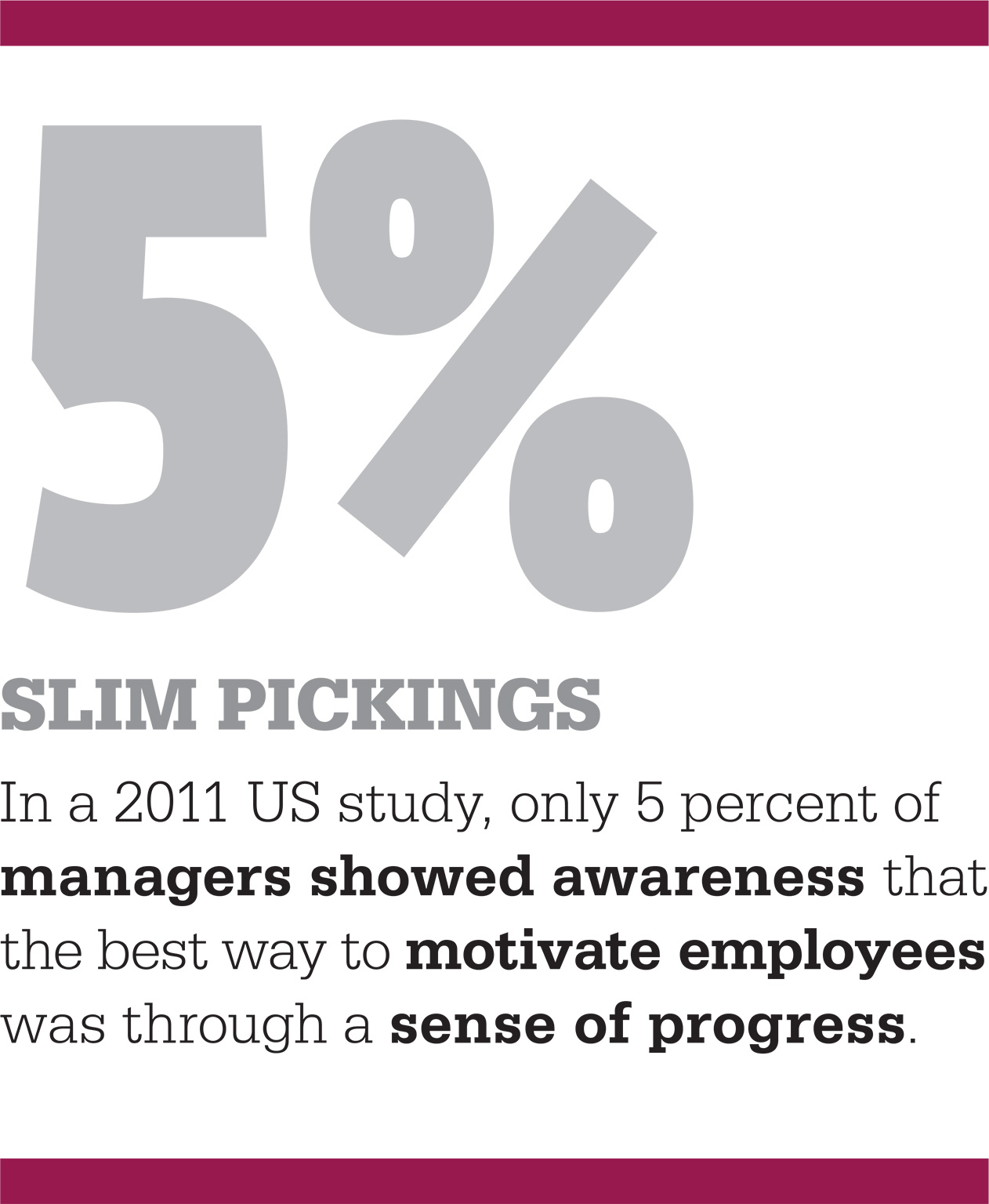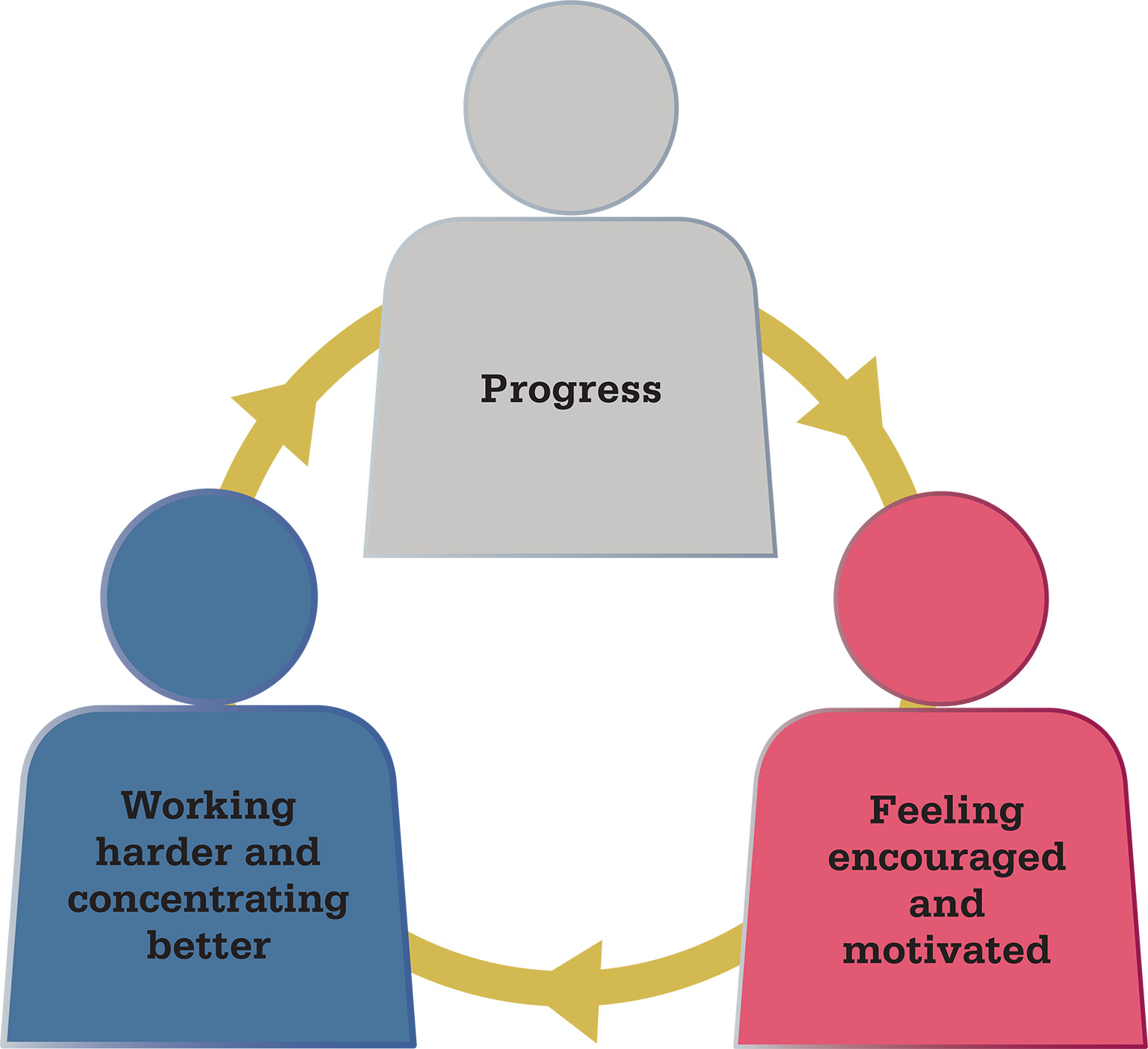
The feeling of progress has a huge impact on your motivation: little victories can be just as important as big ones. Not only do they help you toward your goals; they can also give you the psychological boost you need.
If you have big aspirations, your ultimate goal may feel a long way off, with years or maybe even decades of hard work between you and your objective. That’s not an encouraging feeling, and can leave you wondering if it’s really all worthwhile. The trick is to learn how to enjoy the smaller triumphs—the stepping stones that take you toward your goal – in their own right.
The progress principle
There’s a helpful theory, developed by psychologist Teresa Amabile, which is known as the “progress principle.” The idea is that we all have “inner work lives,” an ongoing stream of emotions and perceptions throughout the working day. Positive experiences, be they large or small, make people more committed, productive, creative, and favorable toward their coworkers.
What makes our inner work lives healthy? Over a decade of research, charting nearly 12,000 diary entries, Amabile and her colleagues found that by far the biggest motivator for people was feeling that they were making meaningful progress. The most interesting thing was, those moments of progress didn’t have to be spectacular: just feeling that you were doing or providing something useful felt meaningful. Likewise, the progress didn’t have to be an enormous breakthrough; just feeling that you were getting somewhere was reward enough.
Applying the lesson
In her work, Amabile focuses mainly on advising managers: her aim is to teach them how to be better leaders. If you are a manager yourself, or aim to rise to that level, the progress principle is useful: if you support a sense of progress, you’re likely to develop a stellar team.
If you’re still on the lower rungs, though, what should you do? It’s hard to feel motivated if you’re working under someone who micromanages, is grouchy, and never says “thank you.” If this is the case, it’s probably best to take stock: are you in a place where you are learning skills and/or making valuable connections? If the answer to either of these is “yes,” you may need to find other ways to achieve a sense of progress: keep a journal of accomplishments, seek out sympathetic colleagues, set yourself a date by which you expect to have learned enough, and plan to move on after that. In the meantime, try to find ways of making progress in whatever free time you have outside work.
If the advantages don’t outweigh the depressing atmosphere, however, it may be time to make your exit strategy your new measure of progress.


Positive motivation
A feeling of progress can create a positive feedback loop, which leads to further progress being made:

 daily triggers
daily triggers
Harvard Business School professor Teresa Amabile identifies three kinds of “inner work life triggers” that keep us motivated or discourage us:
- Progress versus setbacks
- Catalysts versus inhibitors: actions that either directly support or hinder what we’re trying to do
- Nourishers versus toxins: encouragement or criticism from other people
Whether we feel we’re having a good or a bad day is often directly influenced by how many of these triggers we encounter.
